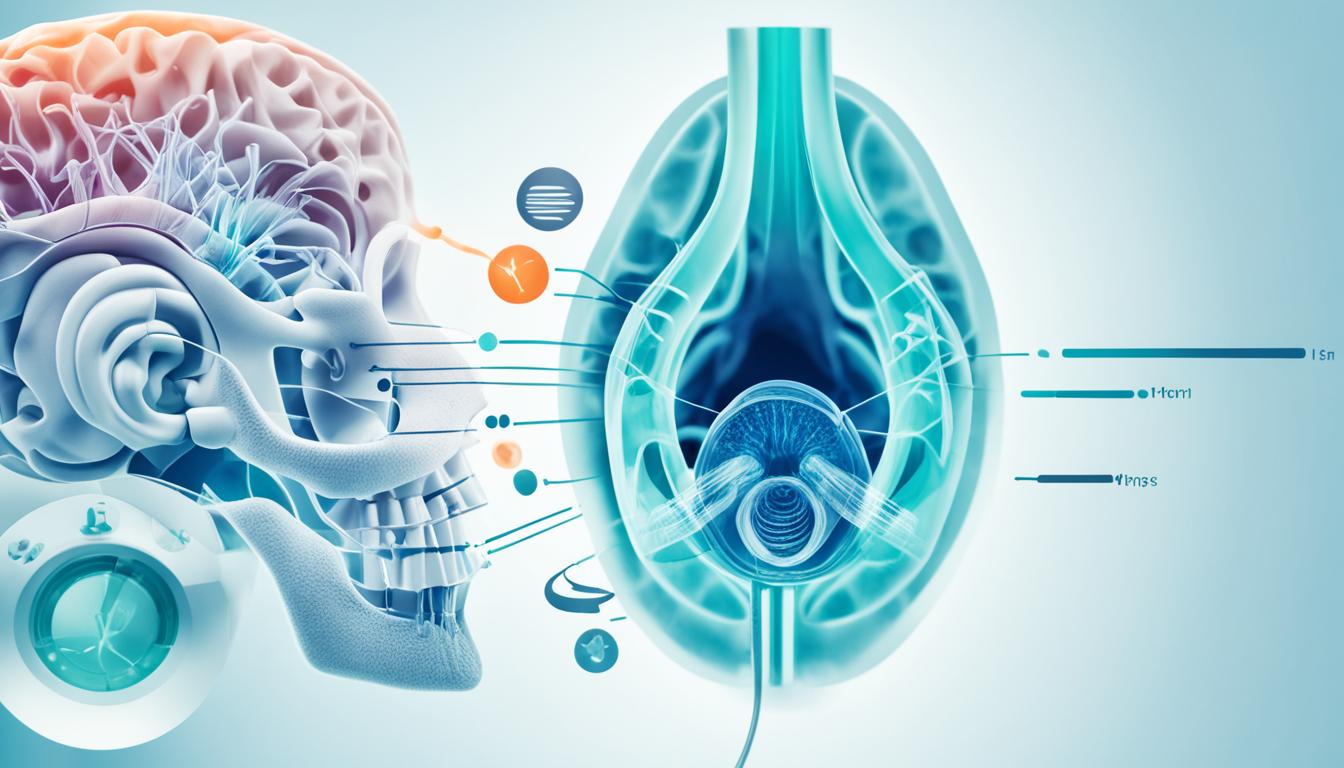Tinnitus, or ringing in the ears, is when you hear noise or ringing. This noise might sound like buzzing or clicking. It can happen in one or both ears and sound changes. This condition can disrupt your life, causing fatigue, stress, and trouble sleeping.
Many things can cause tinnitus, like age-related hearing loss or ear injuries. It can also be due to too much earwax or some health conditions. Exposure to loud sounds, certain drugs, and sudden pressure changes can play a part too.
Doctors diagnose tinnitus by reviewing your health history and doing specific tests. Treatment helps manage symptoms and deal with the causes. This might include avoiding loud noise, using devices that suppress noise, or taking medicines. Sometimes, treating an illness can also help.
To prevent tinnitus, avoid being around loud noises for too long and use ear protection when needed. Also, be careful when cleaning your ears.
Stem cell therapy is a new treatment option for tinnitus. It uses cells from bone marrow or other sources to help heal your hearing. This therapy, along with other treatments, can make tinnitus less of a problem.
Key Takeaways:
- Tinnitus is the perception of noise or ringing in the ears.
- It can be caused by various underlying conditions and factors.
- Diagnosis involves a medical history review and specific tests.
- Treatment options focus on managing symptoms and addressing underlying causes.
- Stem cell therapy shows promise in treating tinnitus.
Understanding Tinnitus and Its Impact
Tinnitus affects about 10% of adults in the U.S. It makes you hear ringing, clicking, or other sounds. These noises come from inside your head and aren’t real sounds around you. They might get louder in quiet places or when you’re trying to sleep. This can cause problems like trouble focusing, sleeping, or enjoying time with others. It makes some people feel sad or anxious.
Tinnitus is often linked with not hearing well. But, it can happen even if your hearing is okay. There are many reasons why it shows up. It might be due to something blocking the ear, infections, certain drugs, injuries, and some health issues.
There are different ways to help with tinnitus. This includes avoiding loud noise and using special devices. Some people find relief with certain drugs. There is also therapy to help change how you respond to the sounds. Researchers are even looking into new methods like brain stimulation to see if they can help.
Tinnitus Symptoms
Tinnitus can be felt in many ways. You might hear:
- Ringing
- Clicking
- Buzzing
- Hissing
- Humming
- Roaring
Tinnitus Causes
There are several reasons why tinnitus happens. Some common causes are:
- Ear blockages and infections
- Medications
- Head and neck injuries
- Other medical conditions
Tinnitus Treatment
Dealing with tinnitus might involve:
- Avoiding loud sounds
- Using noise suppression devices
- Taking medications
- Going through cognitive behavioral therapy
Stem cell therapy is a new treatment showing hope for tinnitus. It works by fixing cells in the ear and nerve. The stem cells come from places like bone marrow or umbilical cord. They can be given into the blood or placed right where they’re needed. Along with this, other treatments can make a big difference for people with tinnitus.
Stem Cell Therapy for Tinnitus – A Promising Approach
Stem cell therapy is showing promise in treating tinnitus. It uses the regenerative power of stem cells. In trials, stem cells from various sources have helped repair the auditory nerve and damaged hair cells.
MSCs can become different types of neural cells. They also release substances that aid in tissue repair. Patients usually receive these treatments through injections or into their bloodstream. Side effects are minimal, with only a few people experiencing a short fever.
Stem cell therapy for tinnitus isn’t suitable for everyone. People with cancer, serious health issues, or infections, and those who’ve had bad experiences with similar treatments, should avoid it. This is a crucial point to remember.
The results of stem cell therapy for tinnitus differ among patients. They depend on factors like the person’s health, medical past, and how severe the condition is, and age. Even though this therapy can enhance life quality for tinnitus patients, it’s vital to talk to a doctor. They can help weigh your options for a treatment personally suited to you.

